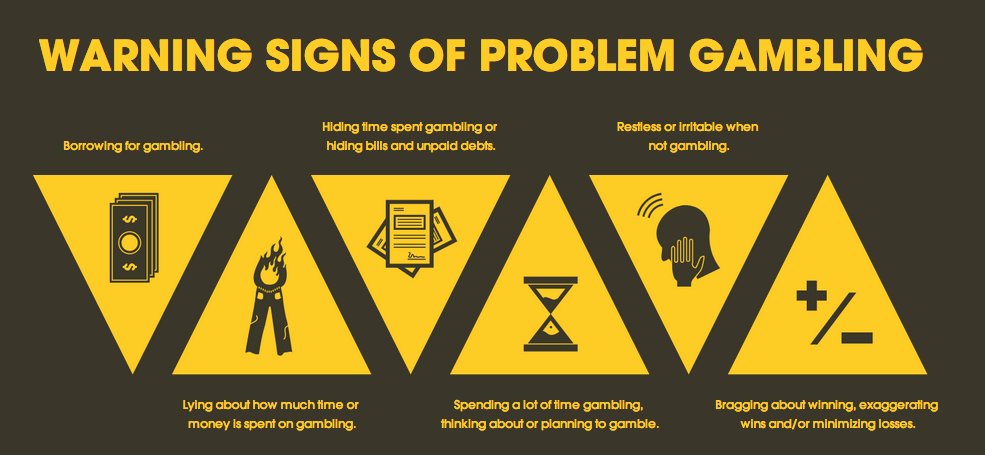A lot of people are aware of what a drug addiction or alcoholic addiction is, however many people are oblivious to the fact that there is such thing as a bingo addiction. Believe it or not, there are some people that can honestly admit to being addicted to bingo. A zeal for the game is nothing to be ashamed of, however when your desire to engage in a game of bingo gets out of control the problem begins.

A Bingo addiction can happen to anyone that avidly enjoys engaging in the game, regardless if the bingo game is played online or offline. A person that is considered to be a compulsive gambler is defined as an individual that engages in an act of gambling despite the consequences that may occur because of their actions.
The implementation of online bingo and other online gambling places has actually increased the chances of someone developing a bingo addiction due to the ease of access and with the development of mobile bingo in recent years the accessibility for users only continues to grow and with it the risk of problem gambling. A lot of people begin engaging in a game of online bingo and other gambling acts for the fun of the game. But, when the game begins to take over your life, a compulsive addiction can develop that can really damage not just a person’s life but the lives of their family and friends.
To identify if you think you or someone you know may have a gambling or bingo addiction, first you should look for the following warning signs below. Also, be aware that gambling addiction is a hidden addiction, which usually does not have “physical signs”, and therefore it’s even more important to be vigilant in looking into someone’s behavioural patterns. Bingo / Gambling addiction can happen to anyone regardless of age, ethnicity, gender identity, class and while links have been found with family members being more likely to experience gambling problems if other members of the family have had/have a problem that does not mean that it is either genetic and / or that someone without a family history of addiction cannot become addicted. These are warning signs you should look out for, and can be indicative of people suffering from bingo or other gambling addictions.
- Persons finds it hard to stop or manage their gambling
- Persons spend more money and time on gambling than they can afford.
- Person has arguments with close friends and family about money and or gambling.
- Person loses interest in their normal activities and hobbies.
- Person always talks and thinks about gambling.
- Persons start lying about their gambling.
- Person chases losses or gambles to get out of financial difficulty.
- Personal gambles away a lot of or all of their money.
- Person borrows money, sells their possessions or does not pay bills in order to “feed” gambling habit.
- Chasing the buzz – i.e. wagering larger amounts or more often.
- Neglecting general responsibilities – household work, jobs, and families.
- A feeling of anxious worried guilty, depressed and or irritable.
Online gambling becomes a bingo addiction when it distracts you from your everyday activities. A lot of people that are addicted to bingo do not realize that they have a problem until it is too late. Bingo is a game that is meant to be fun and exciting, but it can get out of hand. The adrenaline rush, the anxiousness of getting close to winning can make everyone get a little too excited.
However, when you realize that your Bingo addiction or that of a friend or family member is interfering with your / their life, personal affairs and your job you must seek help in order to help overcome these problems. Help is readily available, confidential and can help you bring the problems under control.
Gambling Addiction Help in the UK
If you think you have an issue with gambling and bingo addiction there is a great deal of help available to you. If you live in the UK there is the National Gambling Helpline.
Freephone 0808 8020 133 (lines are open 8am till midnight 7 days a week, they also have an online chat function where you can talk to support members. All of your information will be kept confidential and the supports services are fantastic so don’t hesitate to contact them. Other organisations that can help you and offer advice are as follows;
- GamCare; gamcare.org.uk
- National Problem Gambling Clinic; https://www.cnwl.nhs.uk/cnwl-national-problem-gambling-clinic/ T: 020 7534 6699
- Gordon Moody Association – https://www.gordonmoody.org.uk/
- Gamblers Anonymous – https://www.gamblersanonymous.org.uk/ – National: 020 7384 3040
- Gam-Anon – https://www.gamanon.org.uk/
- The National Debtline – https://www.nationaldebtline.org/ – T; 0808 808 4000
- Medical health for gamblers – https://doctor-gambling.net
- The Money Advice Service – https://www.moneyadviceservice.org.uk/en
- Citizens Advice Bureau – https://www.citizensadvice.org.uk/
- Gambling Therapy – https://www.gamblingtherapy.org/
“When The Fun Stops – Stop”
A very good campaign at the moment from GamleAware is based on the tagline to help people with their responsible gaming; “when the fun stops – STOP! And a few pointers from them include;
- Set you limits & only bet what you can afford
- Never chase your losses
- Don’t bet if you are getting angry or feel you are losing control
- Never put betting before your friends and family
